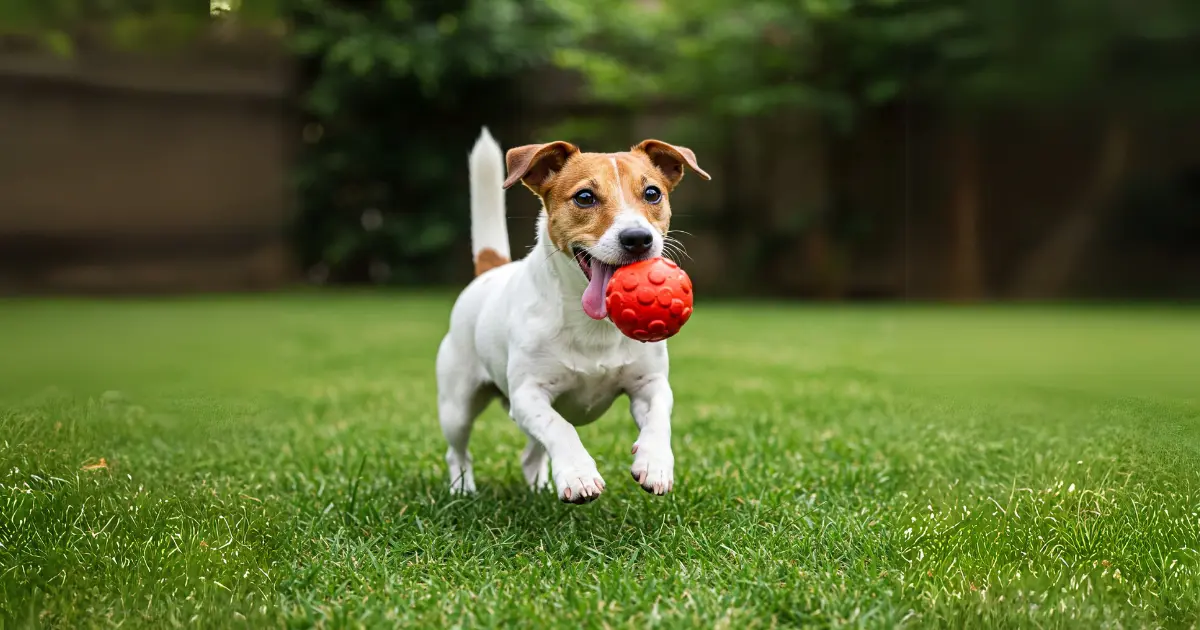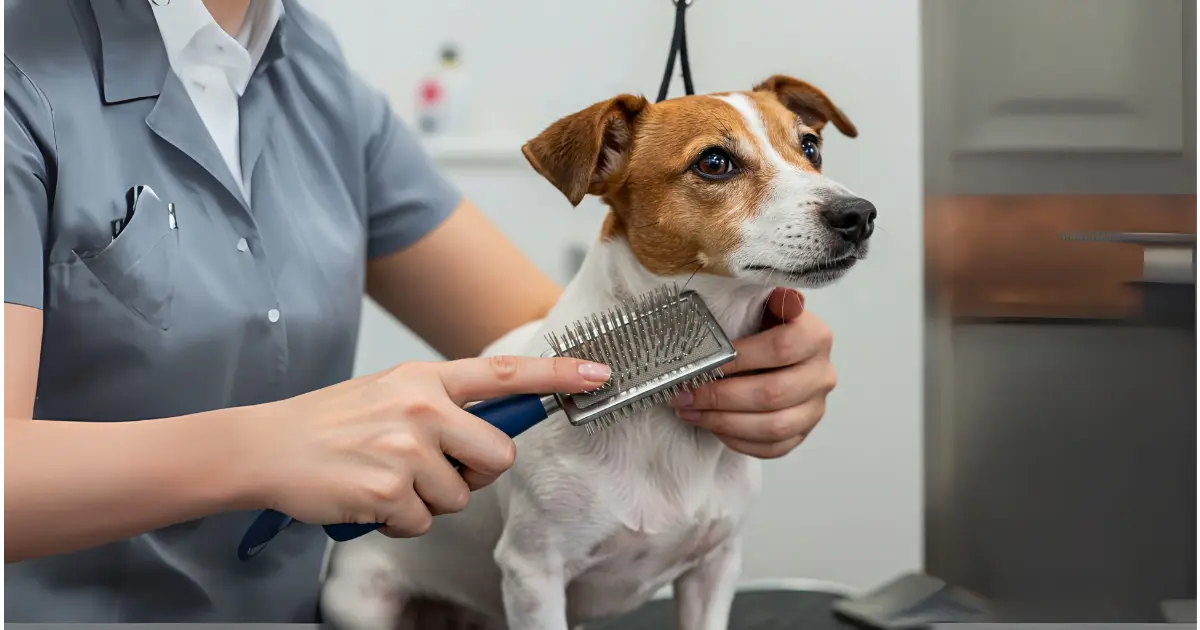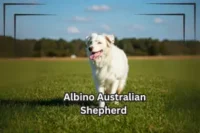Jack Russell Terrier Shorties: Everything You Should Know
Published: 13 Feb 2025
If you’re a dog lover who enjoys a little bit of everything—energy, personality, and love—then the Jack Russell Terrier Shortie might be just what you need. These pint-sized pups bring a lot to the table. They’re tiny, adorable, and packed with excitement. But what sets them apart from their full-sized cousins? Let’s dive into the world of these miniature marvels and see if they could be the perfect fit for your home!

Table of Contents
What is a Jack Russell Terrier Shortie?
A Jack Russell Terrier Shortie is a smaller version of the well-known Jack Russell. They’re typically shorter in height and have a compact, sturdy build that’s easy to manage but doesn’t compromise on energy or personality. These dogs are often a result of a natural genetic trait known as chondrodysplasia, which gives them their short legs. Don’t let their size fool you, though—these dogs still carry the same high energy and intelligence as their taller relatives.
What Makes Them Special?
While the regular Jack Russell is already a bundle of energy, the Shortie version is more manageable for some people. Their more diminutive stature makes them adorable and easy to cuddle, but their personality is all Jack Russell: fun-loving, curious, and a bit cheeky.
The Origins of the Jack Russell Terrier
A History of Hunting and Intelligence
The Jack Russell Terrier was initially bred in the 1800s by an English clergyman, Reverend John Russell, who wanted a dog that could keep up with fox hunting. Known for their intelligence and quick reflexes, these dogs became highly valued in hunting circles.
The Shortie Twist
The Shortie came into being due to a genetic variation, not an intentional breeding program. The dogs with shorter legs became popular, particularly for those who wanted a compact companion that still had all the personality traits of the Jack Russell.
Physical Characteristics of a Jack Russell Shortie
Size and Appearance
Jack Russell Shorties are notably smaller than the usual Jack Russell. Typically, they stand between 8 and 10 inches tall—about 2 to 3 inches shorter than the regular ones. Weighing between 12 and 18 pounds, they’re light enough to handle easily but still have a solid, muscular frame.
Their coats can be anything from silky smooth to a bit scruffy, and some of them have a fun mix of white, black, tan, and brown. With their short legs and sturdy build, they’ve got this funny, lovable look that always catches your eye.
Health and Wellness Tips
Though they’re usually healthy, Shorties can have a few health quirks thanks to their unique size and build. These little guys might be compact, but their short legs and sturdy frames can sometimes lead to issues. Some common concerns include:
- Joint issues like patellar luxation (dislocated kneecaps) due to their compact bodies.
- Eye problems, including cataracts or retinal degeneration, are sometimes found in smaller breeds.
- Routine vet visits and proper care (check out these dog care tips) can help manage these risks, ensuring your Shortie stays happy and healthy for many years.
What’s It Like to Own a Jack Russell Shortie?
A Bundle of Energy
Jack Russell Shorties, just like their full-sized relatives, have abundant energy. These dogs need plenty of exercise every day to maintain their high energy and stimulation for dogs to keep them happy and healthy. A few walks, some playtime in the yard, and a quick game of fetch will help burn off their excess energy. If you’re active and enjoy outdoor adventures, a Shortie could be your perfect companion.
However, if you prefer a low-energy, laid-back lifestyle, this dog might not be your best fit. They are constantly on the go, always seeking something to do.
Bright and Independent
Intelligence is one of their standout traits. These dogs are sharp and pick things up quickly, but they also have a Strong-willed nature so that training might take more time and patience. They flourish with positive reinforcement, so keep the training sessions lively and rewarding to keep them excited and focused.
One important thing to note: don’t mistake their small size for a lack of confidence. Shorties can sometimes exhibit a bold, even stubborn streak, so establish clear boundaries.

Socialization and Behavior
Getting Along with Other Pets
Jack Russell Shorties tend to get along with other dogs when properly socialized. However, they have a strong prey drive, so they might not be the best choice if you have small pets like rabbits or guinea pigs. They may try to chase or “herd” smaller animals, so introductions should be done slowly and carefully.
Great Family Pets
Shorties can be wonderful family pets. They’re usually affectionate, loyal, and love being part of the action. Their playful nature makes them a good choice for families with Teenagers who can handle their exuberance. However, you’ll need to monitor interactions with younger kids to avoid accidental rough play due to their high energy levels.
Lifespan and Health Care
How Long Do They Live?
On average, a Jack Russell Shortie can live anywhere between 12 to 16 years. With the proper care, they can enjoy many happy, healthy years full of love and companionship, including regular vet checkups, exercise, and a balanced diet.
Common Health Issues
Some potential health problems in Jack Russell Shorties include:
- Joint issues: They can sometimes develop joint problems because their shorter legs strain their joints over time. This is something to keep an eye on, especially as they get older.
- Ear Care and Prevention, Especially if they have floppy ears, since moisture can get trapped and cause issues.
- Maintaining Dental Health: Brushing their teeth regularly is essential to keep their smile bright and healthy. It helps stop plaque buildup, bad breath, and those painful dental issues that can sneak up on them. A little brushing goes a long way in keeping them comfortable and happy!

Caring for Your Jack Russell Shortie
Daily Exercise
Jack Russell Shorties need more than just a casual walk around the block. They need at least 30 to 60 minutes of exercise every day. They can become bored and start chewing on furniture or digging in the garden without it. If you love going on runs or hikes, your Shortie will happily join you!
Grooming
Grooming depends on the type of coat your Shortie has. Smooth-coated dogs only need a weekly brush to keep their coat shiny and healthy. If your Shortie has a rough coat, more frequent brushing (every few days) will help avoid matting. Either way, they’re not high-maintenance in the grooming department.
Training
Training a Shortie can be fun, but it requires consistency. For some great advice, check out these dog training tips. Use positive reinforcement—praise, treats, and toys work wonders for these smart pups. Keep sessions short and engaging so they don’t lose interest.
Are Jack Russell Shorties Right for You?
The Pros
- Trim Size: Great for apartment living or homes with limited space.
- Loyal Companions: They’ll be your shadow and keep you company wherever you go.
- Energetic: Perfect for active individuals or families.
The Cons
- High Energy: Requires lots of exercise and mental stimulation.
- Stubborn Streak: Can be independent so training might require patience.
- Strong Prey Drive: Not ideal for homes with small pets unless well-socialized.
Conclusion
A Jack Russell Shortie is small, but don’t let its size fool you—they have a big personality that’ll win you over. Playful, loving, and full of energy, they’ll keep you on your toes whether you’re out on an adventure or just relaxing at home. If you’re looking for a dog that’s always up for anything, a Shortie could be your perfect match. Small in size but big in spirit, they’ll fill your life with joy and laughter daily.
If you’re considering adding a new member to your family, it’s important to think about overall health care too. Keeping your dog healthy through proper joint care and exercise is key, and for more tips on winter maintaining joint health in dogs, check out this helpful guide from the American Kennel Club (AKC).
FAQ
1. How much does a Jack Russell Shortie shed?
Jack Russell Shorties shed moderately throughout the year, especially during seasonal changes. Regular brushing will help keep shedding manageable and their coat healthy.
2. Can Jack Russell Shorties live in small apartments?
Their compact size makes them a good fit for apartments, but they need regular exercise and mental stimulation to avoid boredom. A few daily walks and play sessions should keep them happy indoors.
3. What kind of exercise does a Jack Russell Shortie need?
They need at least 30-60 minutes of physical activity daily to burn off energy. Whether it’s a run, a long walk, or a game of fetch, they love staying active.
4. How difficult is it to train a Jack Russell Shortie?
Training a Jack Russell Shortie can be challenging due to their independent streak. However, they can learn quickly and enjoy training sessions with consistency and positive reinforcement.
5. Are Jack Russell Shorties friendly with other dogs?
They can be but often have a strong prey drive and might chase smaller pets if not properly socialized. Introduce them carefully to other dogs, especially early on.
6. What’s the average lifespan of a Jack Russell Shortie?
These little dogs usually live between 12 and 16 years, some even reaching 17 or 18. A healthy diet, regular exercise, and proper vet care can help them live long lives.
7. What health problems are common in Jack Russell Shorties?
Joint issues, particularly with their knees, are relatively common due to their short legs. Some may also face eye conditions, so regular vet checkups are essential.
8. Can Jack Russell Shorties be left alone for long periods?
While they can tolerate some alone time, they are very social and might get bored or anxious if left alone for too long. Interactive toys or a dog walker can help keep them occupied.
9. How can I keep my Jack Russell Shortie’s teeth in good shape?
Brushing their teeth several times weekly is a simple way to prevent dental issues. Giving them chew toys or dental treats can also help reduce plaque buildup.
10. How often do I need to groom my Jack Russell Shortie?
The grooming frequency depends on their coat type. Short-haired ones need little upkeep, but rough-coated dogs should be brushed weekly to prevent tangles and mats.

- Be Respectful
- Stay Relevant
- Stay Positive
- True Feedback
- Encourage Discussion
- Avoid Spamming
- No Fake News
- Don't Copy-Paste
- No Personal Attacks



- Be Respectful
- Stay Relevant
- Stay Positive
- True Feedback
- Encourage Discussion
- Avoid Spamming
- No Fake News
- Don't Copy-Paste
- No Personal Attacks





